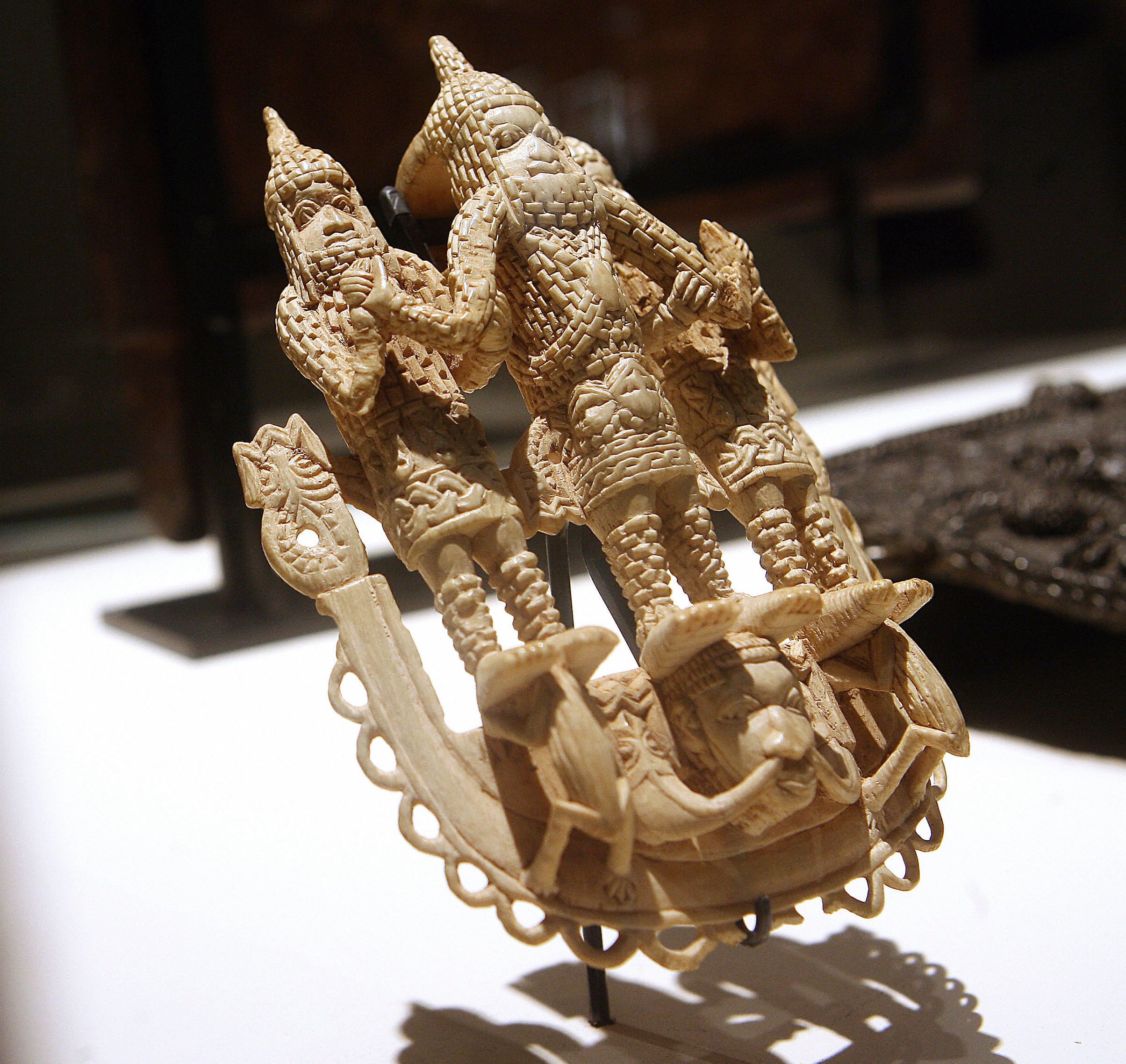
An open letter sent this week to French President François Hollande, from lawmakers and civil society groups from Benin and France, asks for the return of a host of “colonial treasures” to the West African republic that were taken during French rule of the region at the turn of the 20th century.
It is believed that 4,500 to 6,000 objects could be currently held in French museums, like the Musée du quai Branly, and private collections, AFP reports. They were taken from Benin, then known as Dahomey, by colonizers and missionaries.
Benin first called for the items to be returned in July 2016. A formal request to France’s foreign ministry was made in September, and this month, Ministers of foreign affairs and culture from Benin finally went to Paris for negotiations.
The letter urges Hollande to take action before the French presidential elections, the first round of which takes place on April 23.
President of Benin Patrice Talon and French President Francois Hollande in December 2016 at the Elysee palace in Paris. Photo courtesy FRANCOIS GUILLOT/AFP/Getty Images.
The request is a complicated one, and not just due to the fact that the objects have not been compiled into an official list. It also calls on a UNESCO Convention which mandates in part that signatory countries must “ensure that their competent services co-operate in facilitating the earliest possible restitution of illicitly exported cultural property to its rightful owner.”
The convention, however, was signed in 1970 and is not retroactive. Furthermore, the Kingdom of Dahomey constituted what is now Benin as well as parts of Nigeria, blurring Benin’s legal ability to claim rightful ownership of the objects.
A French Foreign Ministry official cited to AFP the “inalienability and imprescriptibility” of the objects that have been part of French public collections for more than a century.
The Kingdom of Dahomey existed from 1600 to 1894. France first invaded the region in 1892, and during two years of colonial fighting, stockpiled “treasures,” while missionaries, in the words of Beninese ambassador to UNESCO in Paris Irenee Zevounou, “robbed communities of what they considered to be charms.”
France granted autonomy to the Republic of Dahomey in 1958, and independence in 1960. After a period of political turbulence, the country was renamed the People’s Republic of Benin by Marxist-Leninist President Mathieu Kérékou.
In 1990, with the writing of a new constitution, the country officially changed its name to the Republic of Benin. Its current president is Patrice Talon.
Talon said that the restitution of the objects could help the country to develop a tourism industry, and allow its people “to get to know better our cultural and historic assets.”